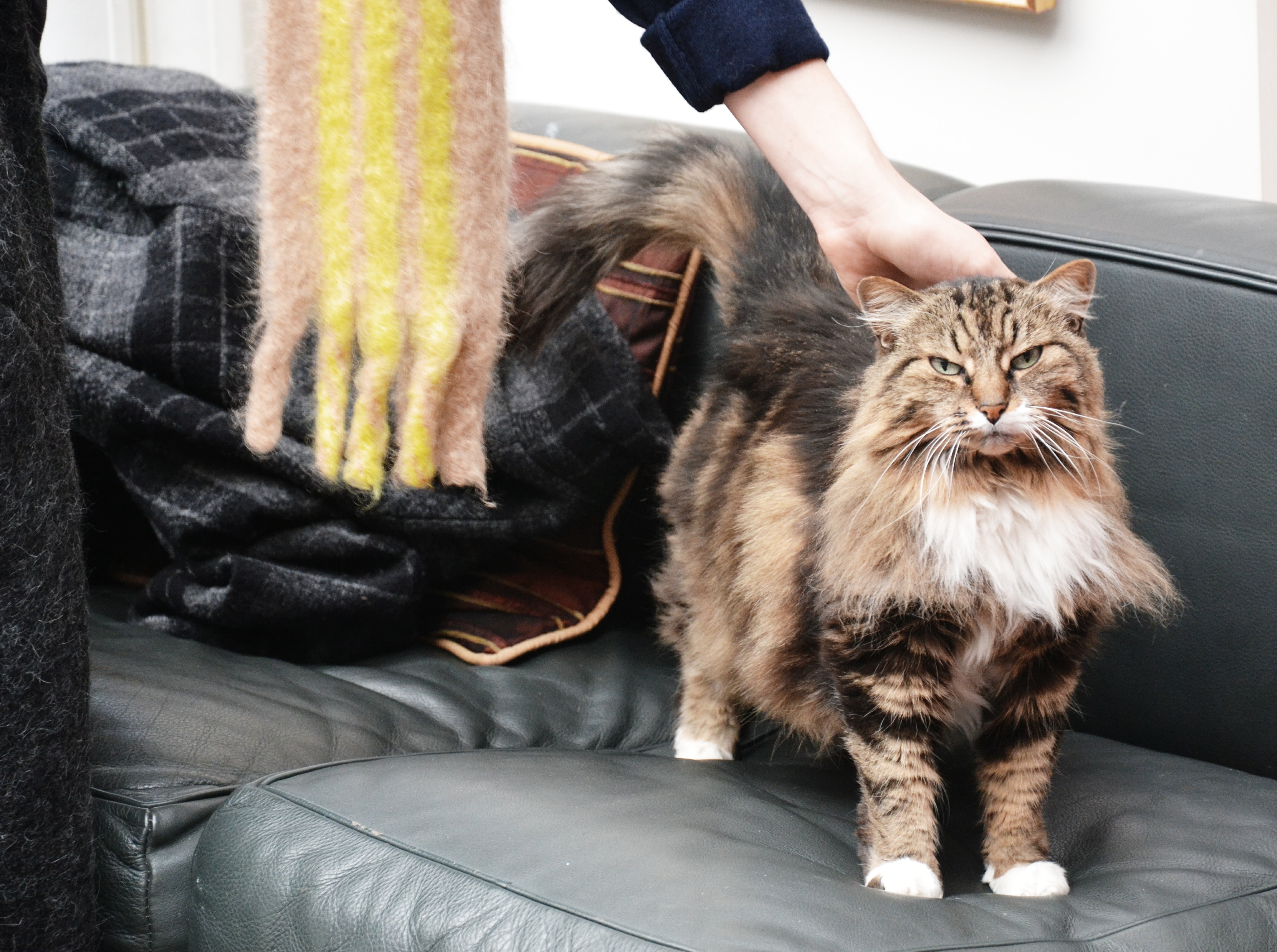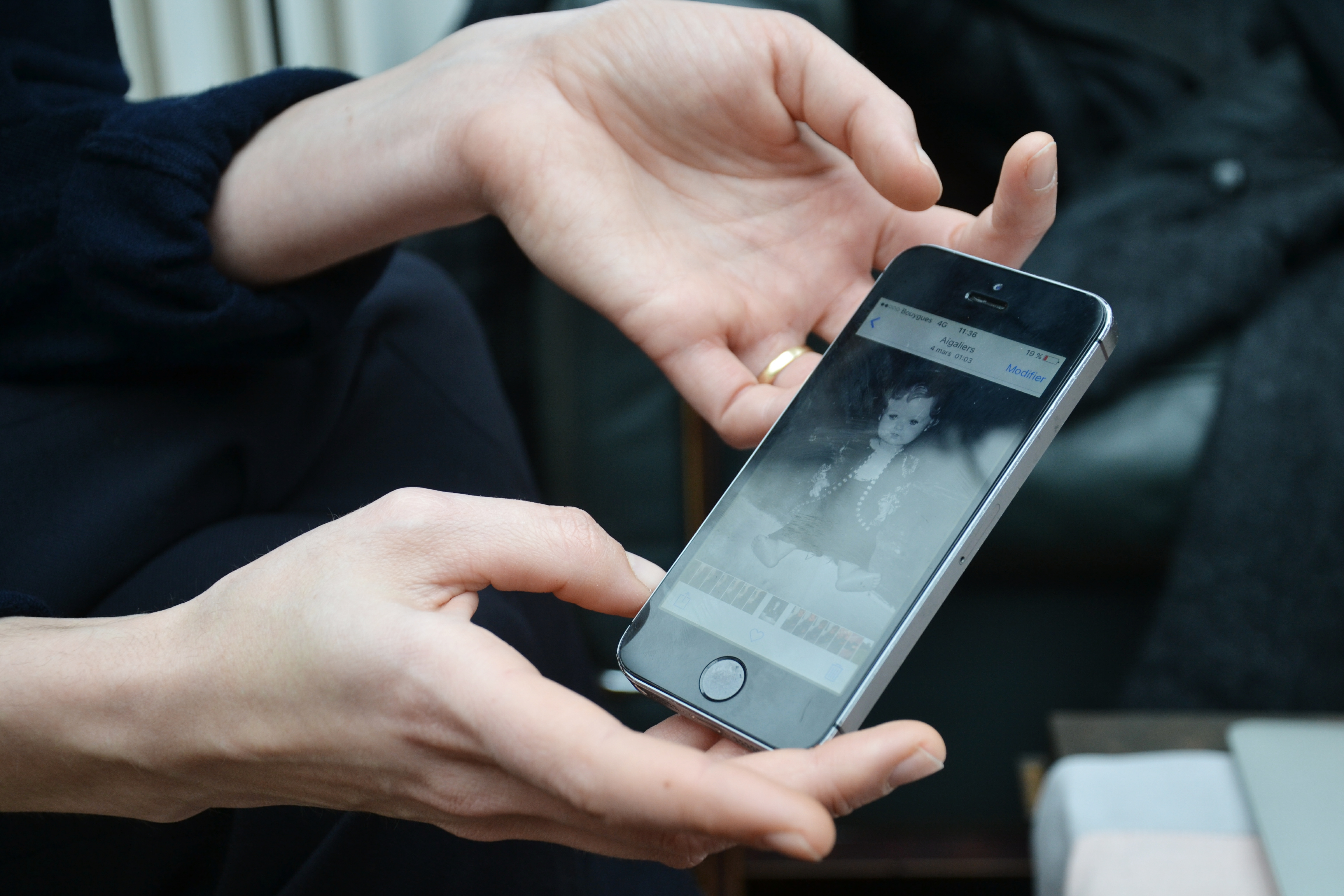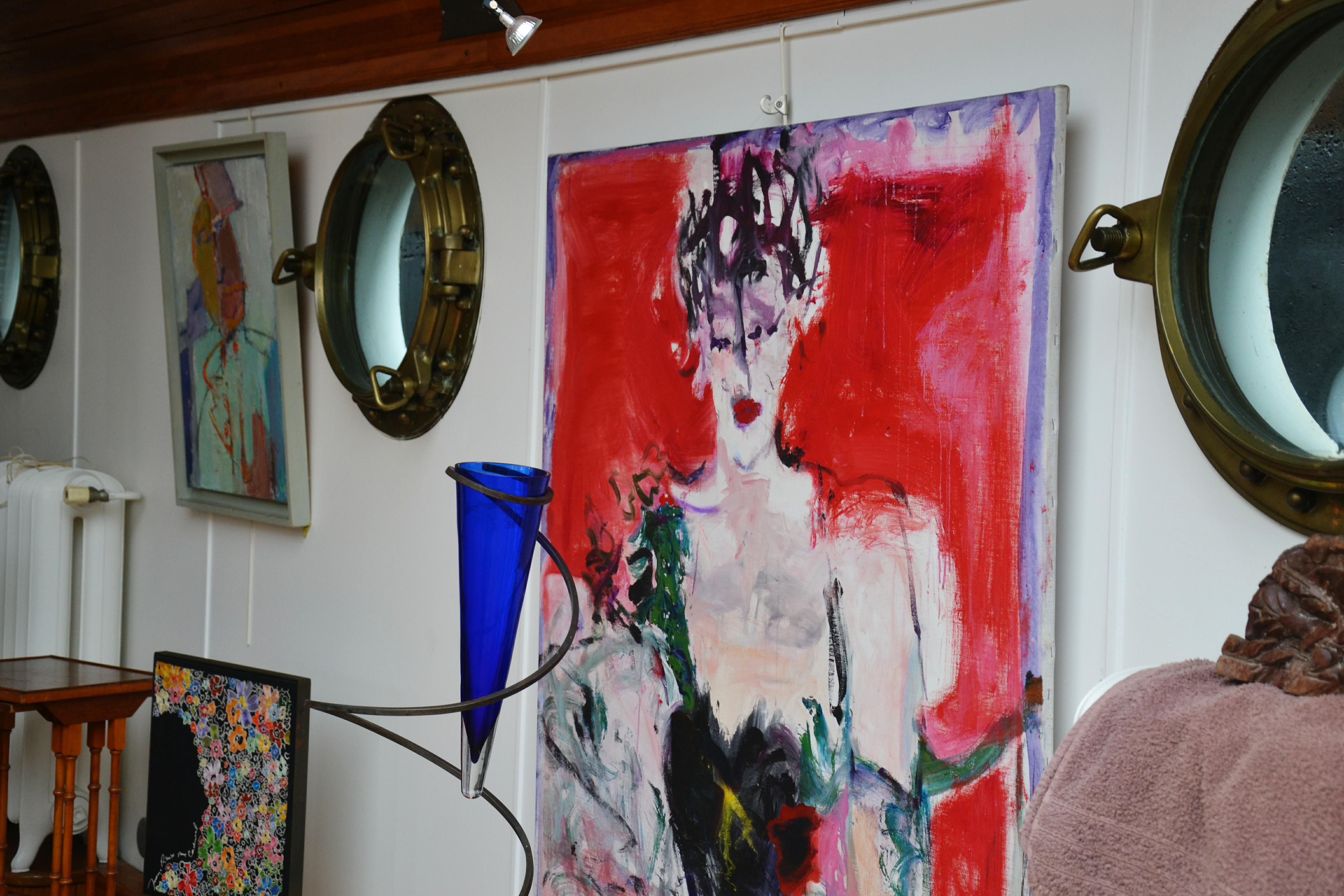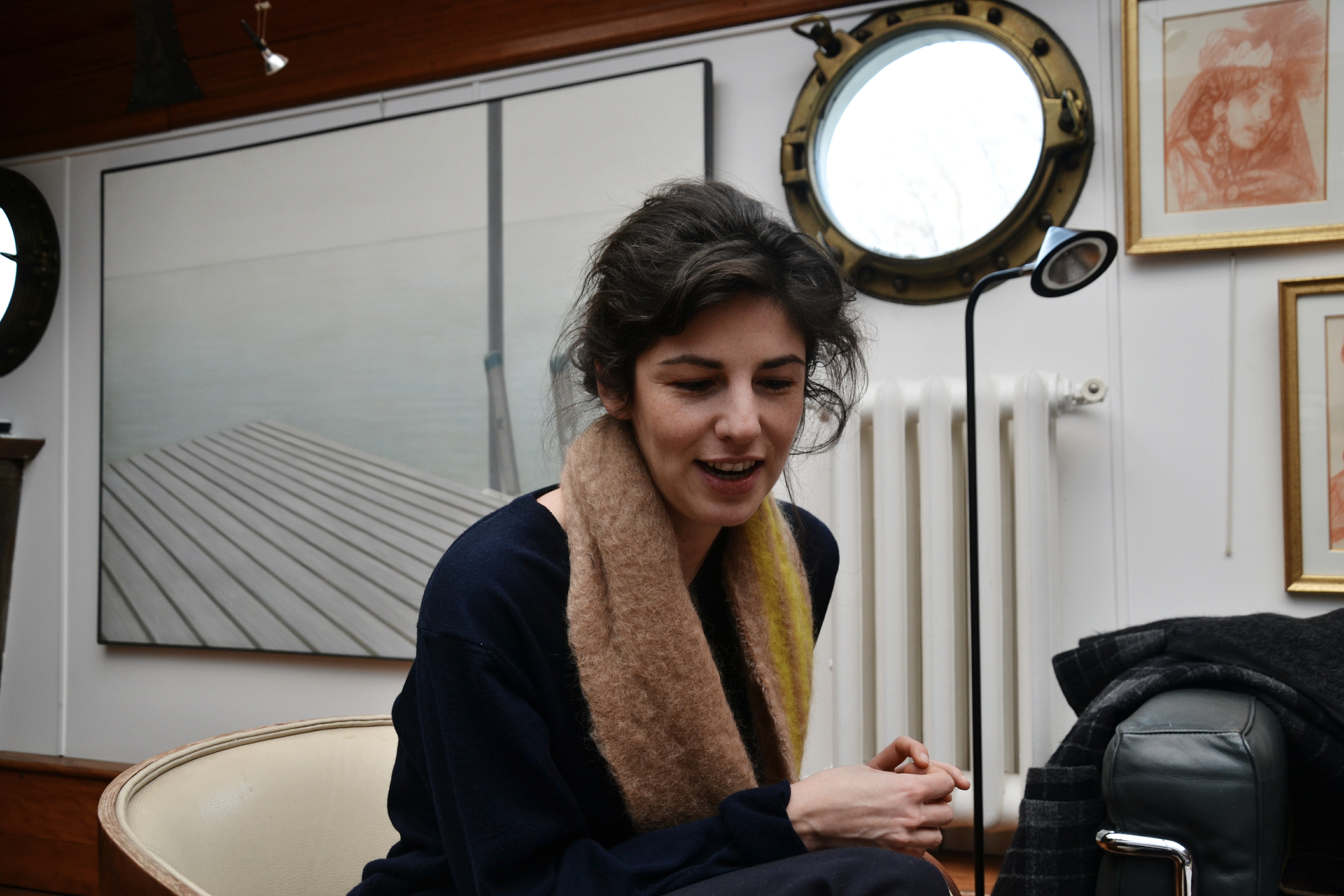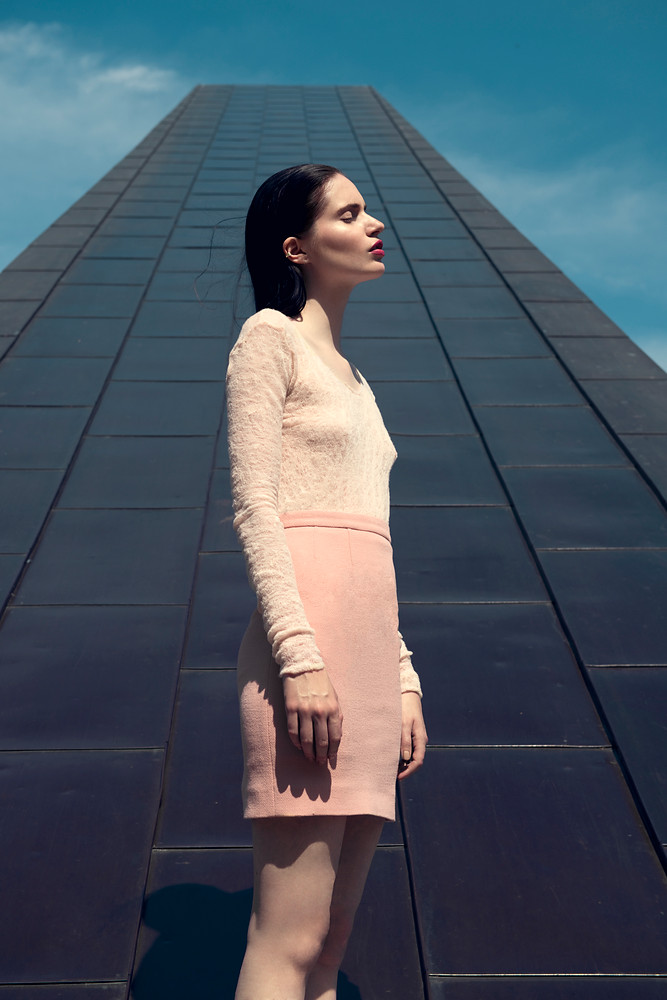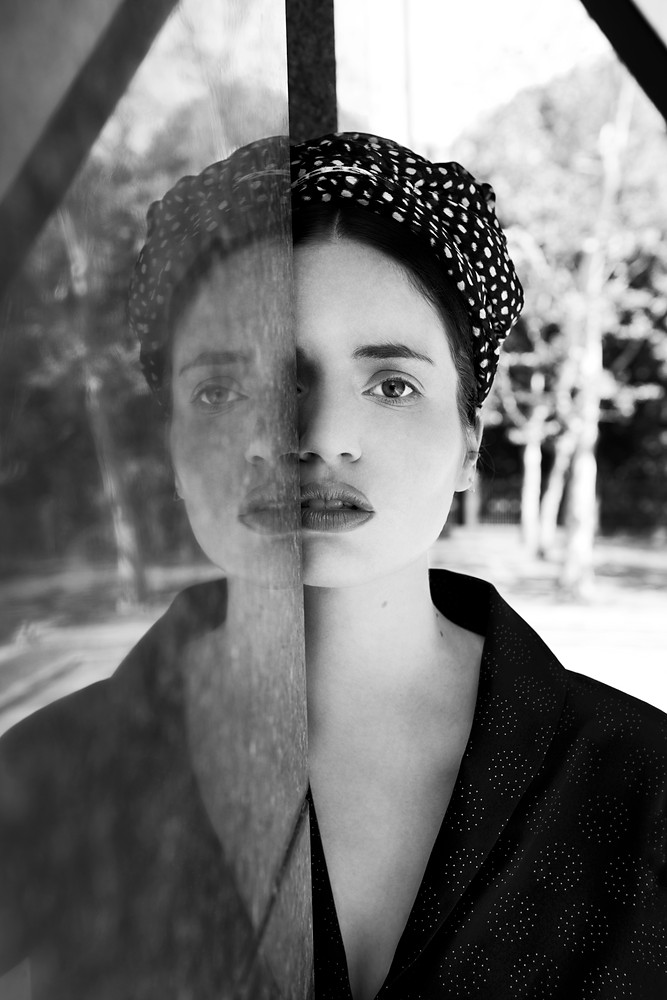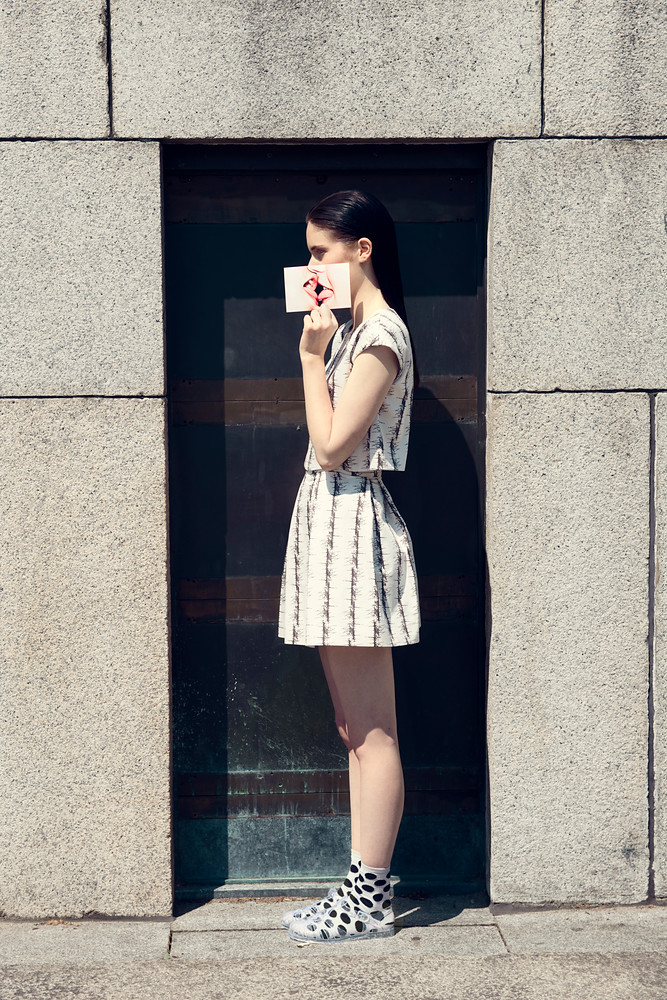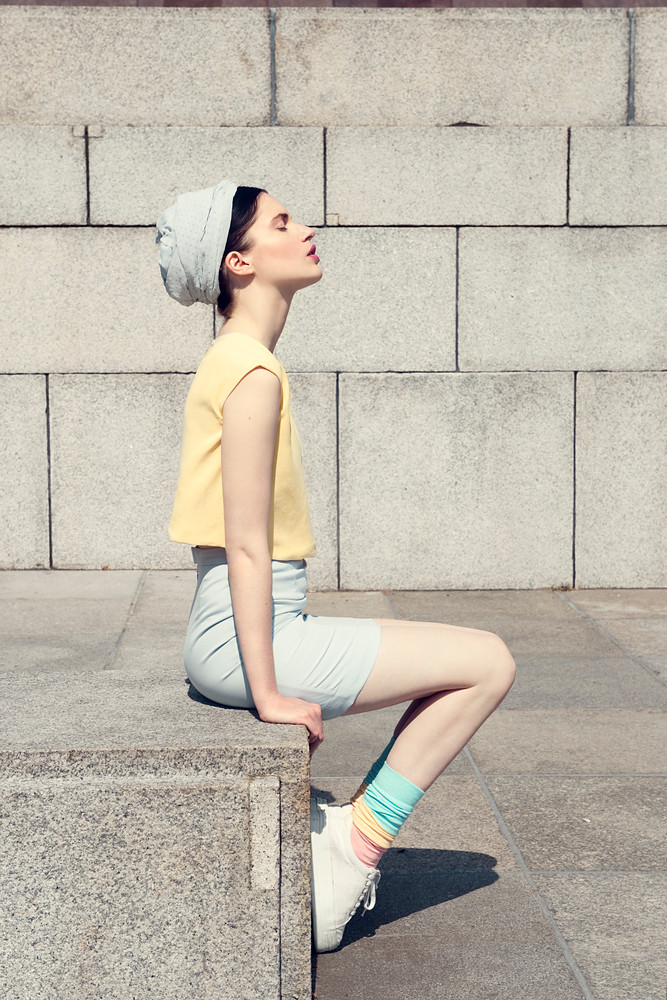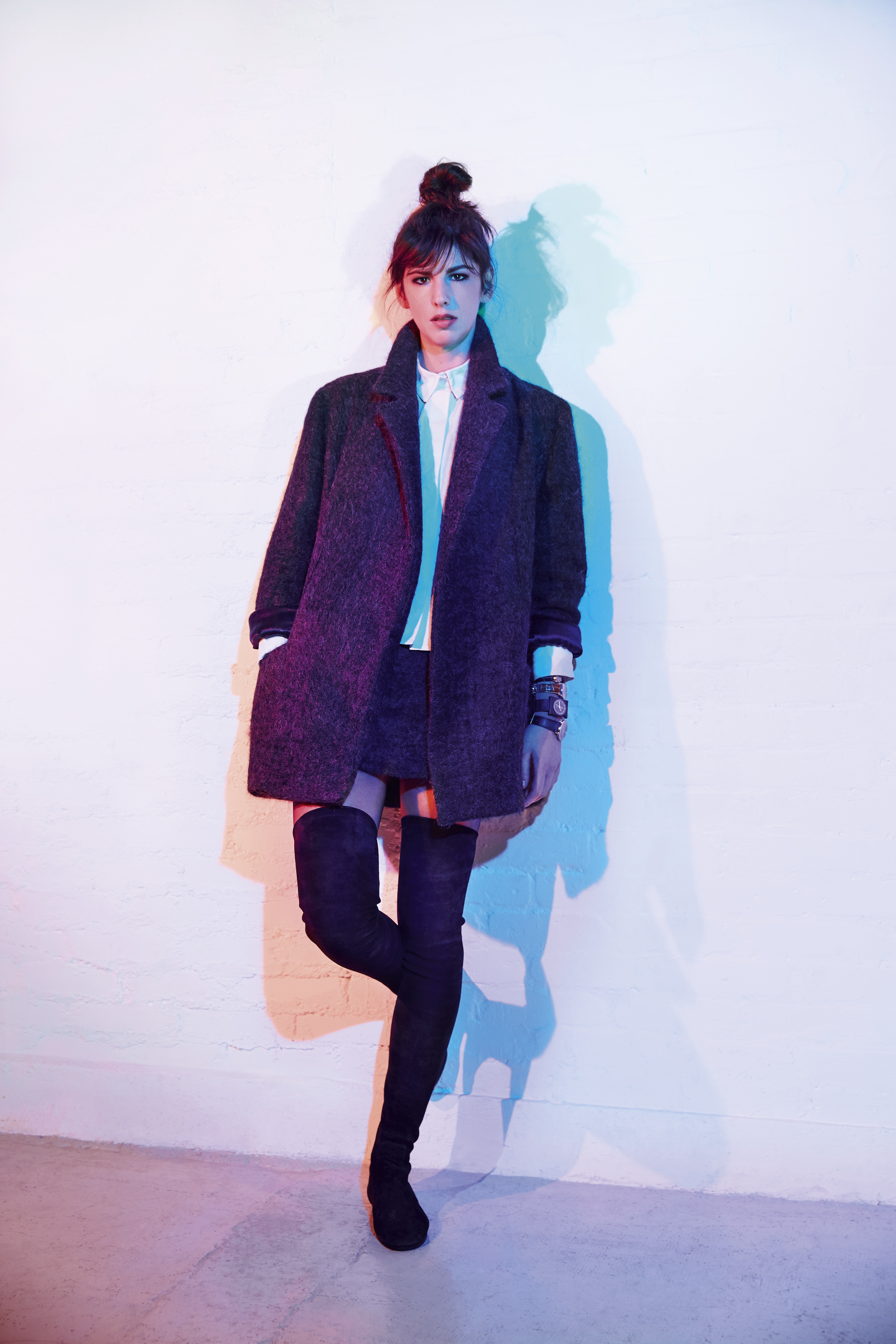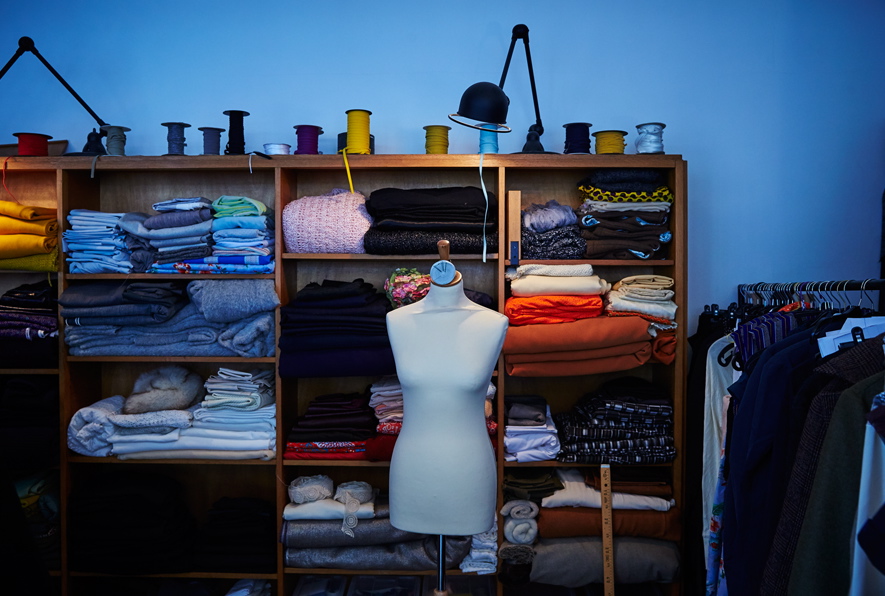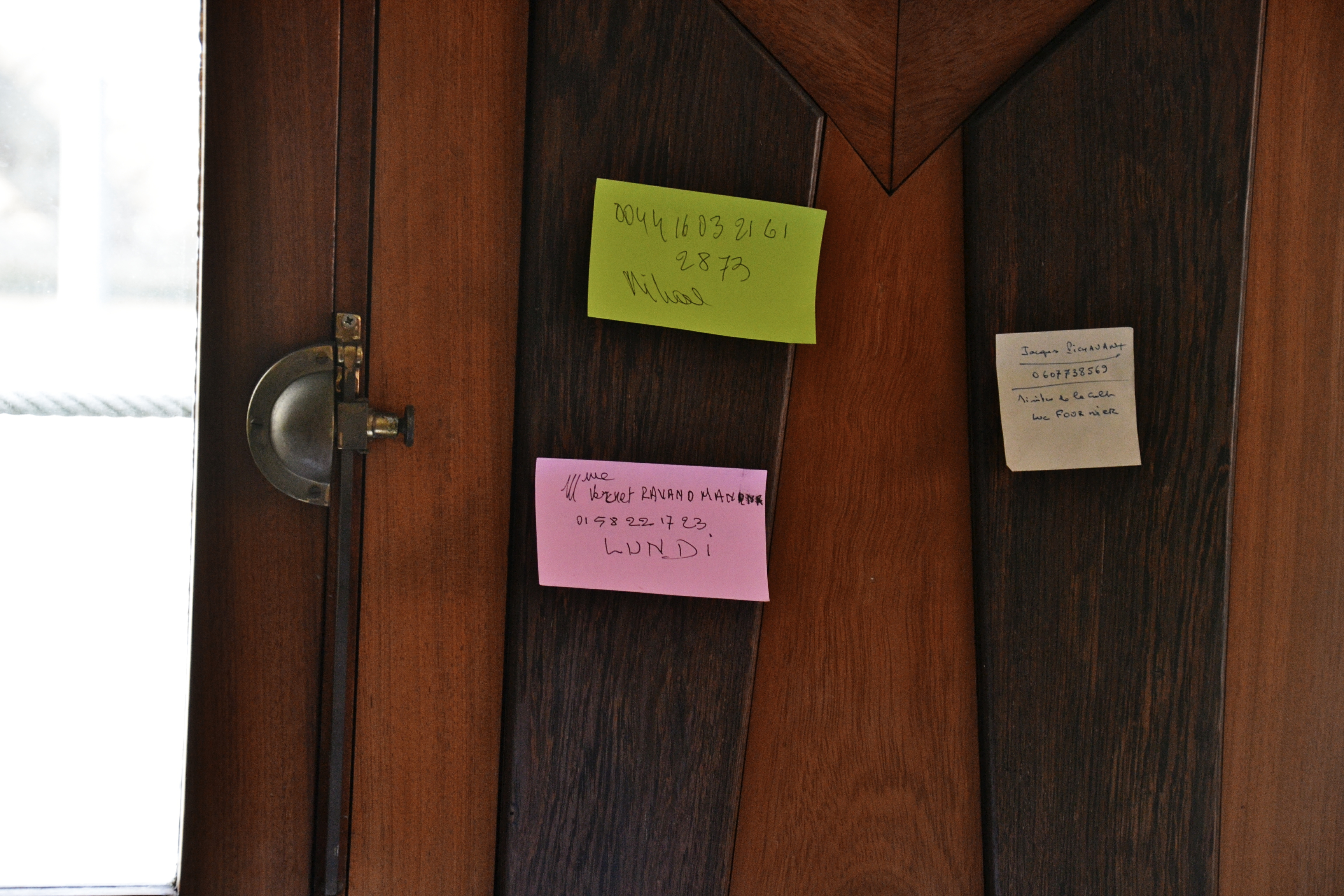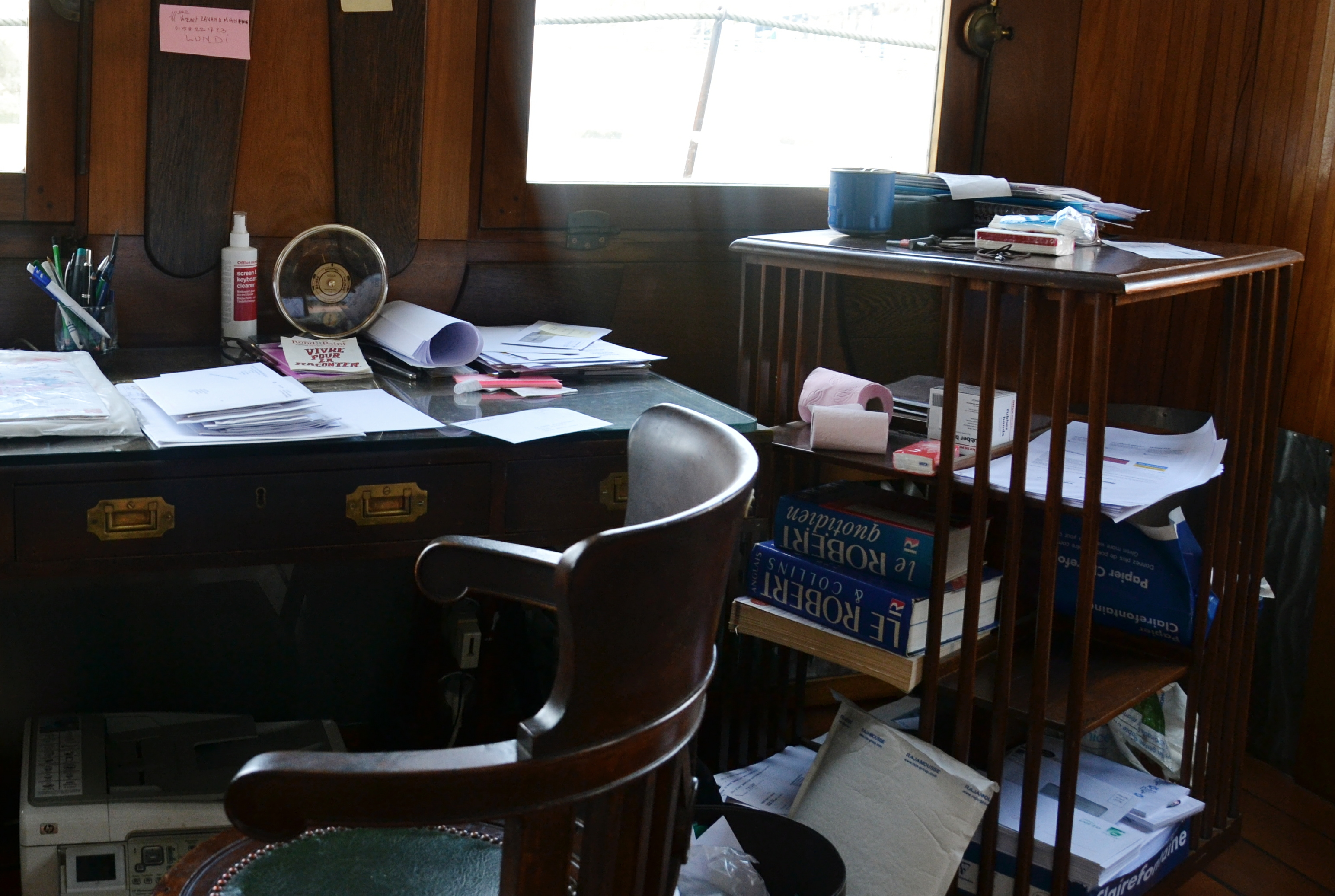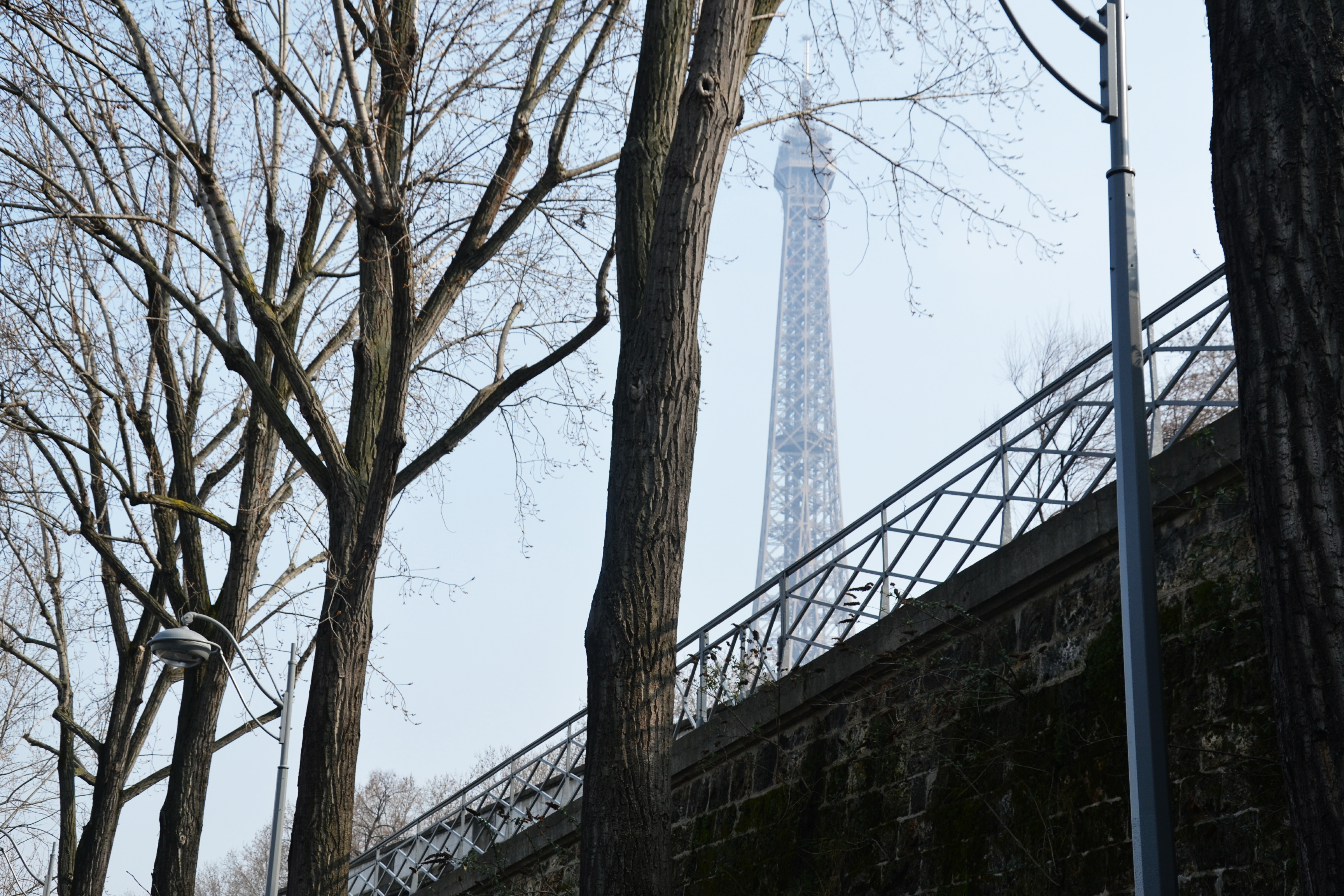"Shut Up and You Will See"
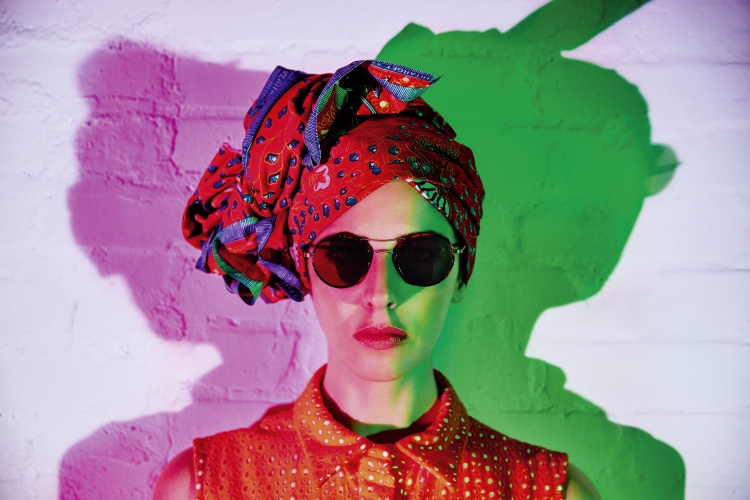
There I was, standing under Pont de Bir-Harkeim, looking for a houseboat. The young woman standing on the deck waving at me must be her, the Franco-German fashion designer and founder of ethical fashion label ZEIT ParisBerlin, Cécile Zeitoun. “I am so happy that my flat in Montmartre is finally being renovated. I am staying here for two more weeks,” she says while taking me on board.
Once inside, it feels like one is in an art gallery rather than on a houseboat — vintage furniture next to a modern fauteuil in the shape of a heart, modern paintings everywhere, most of them painted by her mother. Only the porthole-shaped windows reveal that nothing but wooden floors separate us from the depths of la Seine. While I am stroking the cat that made herself comfortable on the couch, the designer is making some coffee behind the bar. “Would you also like to have a cup of coffee? I am so not a morning person. I love to work at night and it got really late yesterday.” I smile, apparently that’s why she sent me directions at around three o’clock in the morning.
A tough start
The daughter of a Tunisian dentist and a German painter, raised in Paris and in Berlin, Zeitoun started her fashion career in an unconventional way. During her studies in philosophy and history, she worked part-time jobs in order to finance her sewing courses at Atelier Bütsch’s. When talking about this period, the designer gets emotional. “My teacher was a très sévère woman. She was someone that threw your stuff away just because she thought it looked like shit. It was really hard sometimes but I learned a lot.” When she was asked whether she had any fears at the beginning of her career, she replies with a resounding “No, not at all.” “I knew that if I don’t risk it now, I will never do it.” Contrary to her enthusiasm, the reaction from people in her life was anything but encouraging to her career change. “So many people told me that it is never going to work. They were laughing at me.”
'I always knew it'
In retrospect she regards their laughter as a gift that gave her the strength to continue. The 33- year-old designer always knew that she wanted to be fashion designer and no one could have stopped her from fulfilling her dreams. “I thought like ‘shut up and you will see.’ I was like a stubborn little kid crying for sweets.” She grabs for her phone that lies next to the empty cup of espresso on the table and shows me a photo of a doll her mother found two weeks ago. It is wearing clothes Zeitoun made for it when she was about six years old.
Once she was asked who inspired her the most, she could only think of her mother who took her to parties when she was a little girl. “I observed a lot. When my mother entered a room, people looked at her.” The fashion designer was always wondering why other beautiful women didn’t get the same attention as her mother did, until she realized that it was all about the way her mother moved, behaved and talked. The fashion designer points at the colorful portrait of a woman that struck me right at the beginning. "That’s my mother. I learned while observing her that if you don’t feel comfortable in your clothes, you are never going to be seductive and beautiful."
Cécile in her houseboat. Image Credit: Mia Windisch-Graetz
Dreamed in Berlin, made in Paris
In May 2011, the designer launched ZEIT ParisBerlin in the Hôtel Amour. Two years later, she opened her boutique on Rue des Martyrs which is located between Montmartre and Pigalle, one of the hippest arrondissements of Paris. True to the label’s philosophy — ‘Dreamed in Berlin made in Paris’ —Zeitoun used to travel between her atelier in Berlin and her second atelier and boutique in Paris, building a cultural bridge by drawing inspiration from both cities, which can be found in her designs. In Berlin, there are ethics, dynamism and a spirit of freedom; in Paris, unique elegance, classicism and exceptional craftsmanship. Six months ago, Zeitoun decided to close down the atelier in the German capital and move back to Paris. “For two and a half years I did two weeks Paris, two weeks Berlin every month. It was just too much to have two ateliers in two different cities.” She also figured out that she is a real Parisian: “I missed Paris. I love this city. I was homesick.” In the interview she reveals that her brand’s name will be changed to just ZEIT soon. ZEIT does not only refer to the designer’s last name but also means "time" in German and plays an important role in the brand’s concept: Zeitoun wants to respond to a time where everything goes too fast. Instead of producing new fabric, she recycles remaining material that comes from prestigious French fashion houses such as Chloé, Chanel or Saint Laurent. She states that the limitations of certain fabrics make her even more creative. “You always have to ask yourself: what can I make out of it? That’s challenging and real fun.” Thus, each piece is manufactured in small quantities, usually no more than fifteen pieces.
SS 2014 collection. Image Credit: ZEIT
It's ZEIT for a change
Apart from the ‘quality over quantity’- approach, the brand stands for absolute transparency. “I think honesty is really missing in our world.” She even encourages people to come and see how her small team works in the atelier in Montmartre, just a few steps away from her boutique. “We have nothing to hide. We keep it very artisanal.” While on the subject of time, in the fashion industry it is all about timing. Anna Wintour once said “If it’s too soon, no one understands. If it’s too late, everyone’s forgotten.” Does Zeitoun agree with this? - “I agree, but do you really need to be understood? Nowadays it’s all about money and I think art and fashion shouldn’t be commercial.” How then has Zeitoun managed to become so successful? “Maybe sometimes one shouldn’t be too realistic. You need to kind of ‘unsee’ the risks in order to get the chance to succeed. It’s so sad that young people are so pessimistic nowadays.” Pessimism was one of the reasons why the designer escaped to Berlin two and a half years ago. She claims, that her project was received much more positively there and that she got opportunities that seemed to be unimaginable in France “You have the feeling that everything is possible in Berlin. It’s like in New York, people are more openminded.”
'People are not stupid'
The reason why the designer returned to Paris was not only because of her deep love for the city, but ironically also because of better future perspectives. Even though people in Berlin are one step ahead concerning sustainability, she strongly believes that Parisians are changing the way they consume - even if only at a slow pace. According to her, expensive brands that neither provide ethical nor sustainable value will eventually have to change their ways: “People are not stupid. Why would they buy poor quality made in China when they could have transparent high quality fashion for the same price?” Parisians have more money than people in Berlin and will not spend it on secondhand clothes when promoting a conscious lifestyle, but rather go for exclusive ethical fashion brands," she claims. Was it always clear to Zeitoun to only produce eco-friendly fashion? “Yes, otherwise I would have done politics. Actually, going shopping can be very political. We don’t need to vote any more but rather change the world by the way we consume. Most individuals don’t know how huge their impact can be. We can fight capitalism with capitalism.” While having worked for “Dessine l’espoir” in Swaziland, where she contributed to the doll collection of Lanvin Petite, the designer got inspired by the people’s way of living there. “I told them that the Parisian metro came every two minutes. They had a great laugh about that and said that we are crazy, and they are right, we really are.”
Despite receiving a lot of financial support from her family, the designer doesn’t mince words about having had a rough time at the beginning of her career: “Being in fashion might sound like fun and being creative all the time but it’s a tough business. I was really struggling. It was so much work, that I haven’t been on holidays for the last four years. I didn’t have any weekends off. I was working twelve hours a day. I was stressed out and I couldn’t sleep at night.”
Cécile models for her own fashion sometimes. Image Credit: Bruno JuminerThe atelier in Montmartre. Image Credit: ZEIT
If she still would do it all over again? - “No, why would I go through so much struggle and pain again?” - If she should have rather gone into politics? - “To be honest, I probably wouldn’t have done a whole lot of things differently. I guess, if I could turn back time, I would have done the same because you never know, maybe I would say the same about politics if I had done it.”
In future times
Apart from changing her label’s name, opening a second boutique in the 10th arrondissement next year, and thinking about making a men’s collection, the designer does not want to spoil any more about her future plans. Her phone rings. My pen is almost falling off the table. Throughout the interview, one could feel the boat moving. Before we leave, she puts on her sunglasses. On our way outside I can spot some Post-Its with French names and English numbers pinned on her little bureau upstairs. Pink toilet paper rolls and Le Robert dictionaries on her desk make the designer with the contagious smile even more likable. “À très bientôt und hat mich sehr gefreut, liebe Mia,” she gives me two bisous and heads to the RER, on her way to buy new fabric.
Image Credits: Mia Windisch-Graetz

